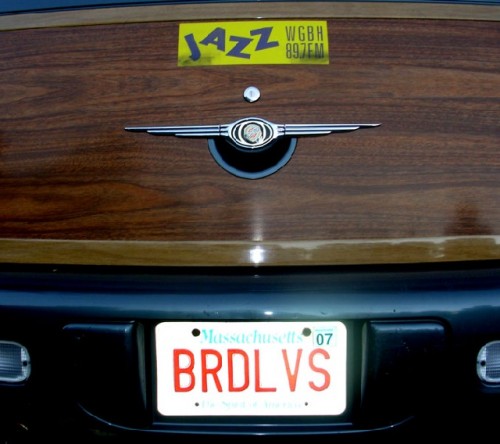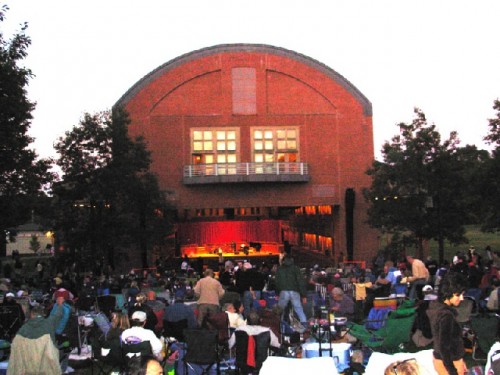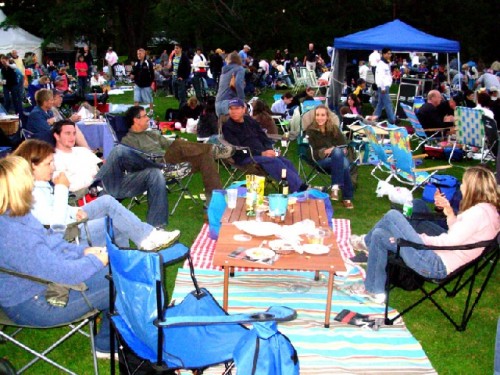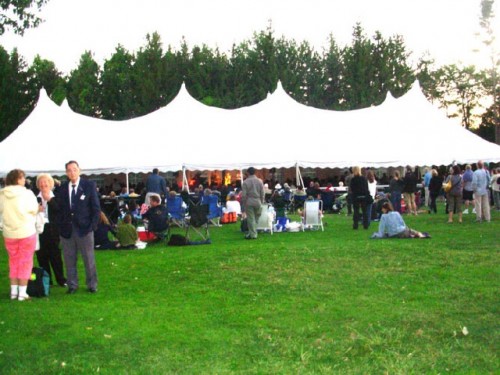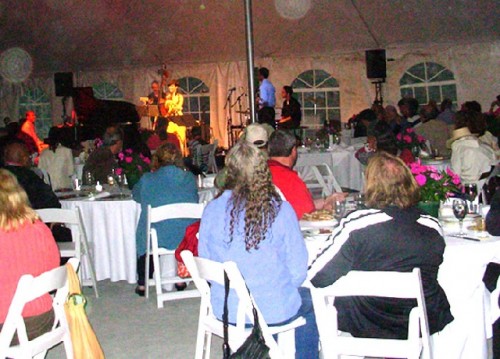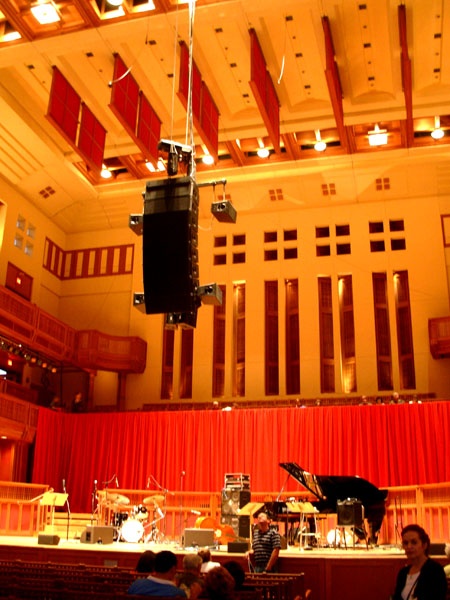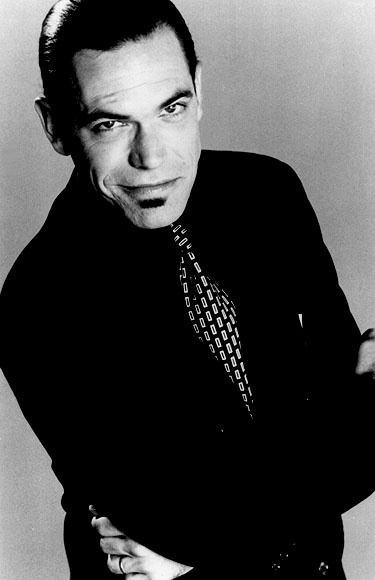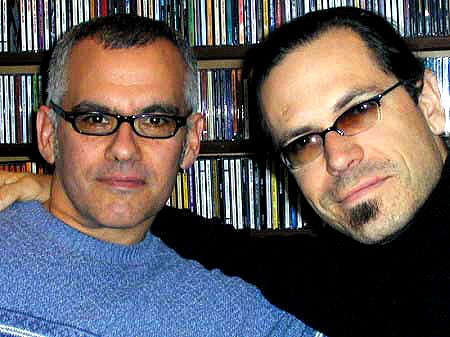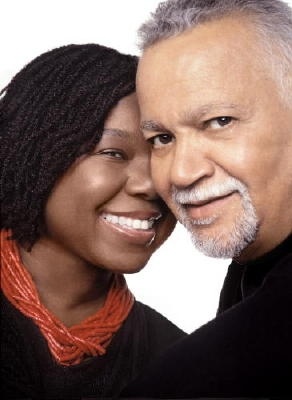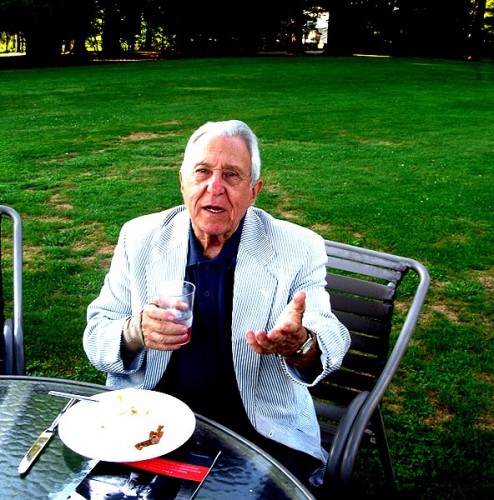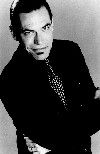Kurt Elling, Randy Crawford and Joe Sample Headline at Tanglewood Jazz Festival
Day Two of the Three Day Event
By: Charles Giuliano - Sep 02, 2007
What a different a day makes. While Friday night was cool out on the lawn for picnickers attending the Labor Day Weekend long Tanglewood Jazz Festival, last night it was downright frigid. It seems, as is all too typical in the Berkshires, we skipped past fall foliage, do not pass Go and do not collect $200, and went straight into winter. Folks were huddled under blankets and stamping their feet to get some circulation going. Even inside Ozawa Hall it was cold baby. Tonight, I plan to come with Layers for the final show of Hank Jones accompanying Roberta Gambarini and Jimmy Heath sitting in with piano legend, Ahmad Jamal.
But last night the turn in the weather did not dampen the spirits of the faithful thronging to Lenox in what is fast becoming a wonderful new Tanglewood tradition. The fabulous warmth and expansive humanity of scat singer Kurt Elling filled us with an inner glow. His set was followed by the sweet singing of Randy Crawford paired with her main man Joe Sample and his trio with the pianist's son on bass.
While we missed the afternoon set of Marian McPartland taping a Public Radio broadcast of her series "Piano Jazz," with guest artist Renee Rosnes, we had to perform Saturday chores and file a report on the Friday night concert, we arrived in time for the end of the afternoon set by a fifteen-year-old, Berkshire based, sax player Grace Kelly in the Café tent. She was wailing with her combo while fans sat at tables and were served food and drink. There were also folks jammed into the CD tent where the artists were autographing their recordings and chatting with visitors.
We imbibed in the flavor of just what legendary Jazz entrepreneur, Freddy Taylor, means by Festival. It is more than just a few concerts to end the season at Tanglewood. It is an Event baby. A happening man. A chance for the cats to get together and groove at one of the most gorgeous and gracious venues for music on this cottin pickin earth man. Far out.
Even the performers seemed overwhelmed by their surroundings. The ever gracious Elling looking around at the glorious space and state of the art acoustics of Ozawa Hall expressed feeling "like I got a promotion" to be on that stage. He commented on being emotionally staggered by looking out at a sea of "beautiful people." He stated that after some ten grinding years on the road and some pretty tough gigs along the way performing in such a setting was an affirming experience. It is just such an upgrade that helps to keep Jazz alive and reaching new audiences. Jazz and Tanglewood prove to make for perfect synergy and lets hope that this programming, receiving such a gracious and enthusiastic response, gets expanded to include events at the height of the season.
The set that Elling performed was a stunning revelation of the conundrum of just how Jazz will sustain as a living and ever changing art form now that there are fewer and fewer of the surviving giants. A couple of years back it brought a choke in my throat to see a badly hobbled and gimpy Sonny Rollins wailing like a teenager on that same prestigious stage.
If you shut your eyes and just listened to the sound of Elling's rich baritone with a phenomenal four octave range you would hear the echoes and reincarnation of the great singers from Eddie Jefferson and King Pleasure to Johnny Hartman, Joe Williams, Oscar Brown Jr. and the phenomenal inventions of Jon Hendricks, one third of the seminal trio, Lambert Hendricks and Ross. In terms of style and technique Elling is nestled into a great tradition but refreshed with new ideas, superb lyrics, swooping and swooning, crooning. He has the ability to squeeze all the emotional juice out of a song and in that sense stands shoulder to shoulder with the greatest jazz singers I have ever heard. It is not surprising that he is being inundated by awards and critical recognition. It is artists such as Elling who are the heart and soul of the next generation of Jazz.
"What does scat mean?" Was a famous question that Alan Lomax asked the legendary New Orleans singer, composer, band leader and pianist Jelly Roll Morton during the famous Library of Congress interviews and performances? "Why scat ain't nothing but what you do to give a song a flavor," Morton, who claimed to have Invented Jazz, he was given to hyperbole, explained to the musicologist Lomax. He then demonstrated by scatting through a song, "bee bop, de doodie bop, lang bang, sheeebang." Scat may have been invented by Louis Armstrong on his song "Heebie Jeebies" recorded with his Hot Five in the 1920s. As Satchmo explained he scatted because he forgot the lyrics. So started a great jazz tradition and its offshoot vocalese where singers like King Pleasure and Eddie Jefferson took the solos of James Moody and Lester Young and created lyrics or just improvised sounds.
Last night Elling provided an awesome demonstration of that technique of creating a great tribute to a famous instrumental improvisation by setting lyrics to a Dexter Gordon solo of "A New Body and Soul." It brought back memories of Dexter one of the most formidable and handsome of all jazz tenor players. I looked him up in Copenhagen where he was living at the time and had a lunch including several shots of frozen schnapps as he told the story of self imposed exile from the States. It was one of my last Sunday features just before the Herald Travel folded in 1971. Later when I would run into Dexter I would always ask "Hey man do you remember me from that time we had lunch in Copenhagen?" The invariable response was "No baby" followed by "do you have a joint on you?" Man did I love that guy. And who will ever forget how he would lift the horn in horizontal salutations to the audience after yet another soulful rendering of a romantic standard.
Elling brought back all those emotional memories in a set that dug down into the deepest darkest recesses of my soul and psyche. Not that I understood it all. With his musical director, Laurence Hobgood, he performed a lot of new material from the 2007 CD for Concord "Night Moves." As he explained, it is a series of songs about a young man and his process of discovering the complex aspects of love. Several of the musicians who performed on the album joined him for a few numbers on stage including a mesmerizing boss nova duet with the sensational guitarist Romero Lumbambo. Joel Frahm came on to play tenor sax and Gregorie Maret sent tremors through the hall with his richly tonal harmonica. One of the most touching songs of the evening was "Luiza" by Antonio Carlos Jobim. He informed us that is the name of his daughter as well as that of his collaborator Hobgood. He also performed a duet with his bass player Rob Amster. The drummer Willie Jones 111 was wonderfully subdued in sustaining a low key and melancholy mood through effective work with mallets and brushes. But he broke into a sizzling solo at the end of the set.
Randy Crawford and Joe Sample got into a nice groove with straight up versions of standards. They also performed from their recent CD "Feeling Good." A heavy set woman with a cherubic face and sweet delivery she mostly stayed within the middle of her vocal range. The audience was drawn in and appreciative particularly when performing the hits "Street Life" which she recorded in 1979 with Sample's former group The Crusaders and his "One Day I'll Fly Away" from the 1980 album "Now We May Begin."
The Festival continues this afternoon with Kevin Mahogany's Kansas City Revue in a tribute to Big Joe Turner and Bossa Brazil. See you there. Later man.

